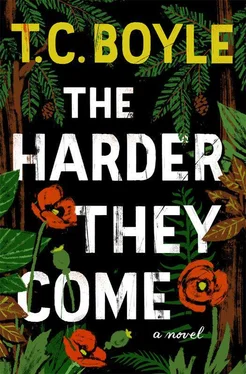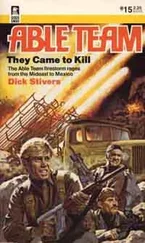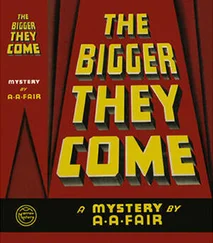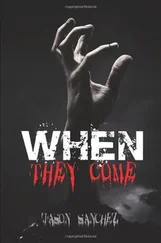HE COULDN’T STOP LAUGHING, giggling like he was in junior high and Mr. Wilder was throwing his voice to be Huckleberry Finn one minute and Nigger Jim the next, because this was the way it was supposed to be, sticking it to them at the Big 5 and at the animal place too, one-upping them, one-upping the world, and she was giggling too so that every time he found himself winding down she’d start him up all over again, best thing ever, huge, just laughing and laughing, and what he was thinking was that she was all right, cool, or close to it, even though she was too old and didn’t have any qualms about displaying her uptight side for all to see, leaning on the car horn and barking at him in the parking lot to the point where he’d almost told her to go fuck herself and forget about the ride because he could just stick out his thumb and not have to listen to her shit or absorb it either. But he was racing now, the little wheel inside his brain spinning at top speed, everything on the highway shooting by as if they’d gone into hyperspace though there was no one chasing them and when he snatched a look at the speedometer he saw she was doing fifty-five, exactly fifty-five, as if the engine had a governor on it. Or a robot arm. He tried to picture that and all he could see was a bolted-together metal head where her head had been just a second ago and a mechanical arm reaching down under the steering wheel and through the instrument panel and into the superhot engine until she began to say something through the giggles and her real head popped back on her shoulders with all its lines and grooves and stingy retreating bones and the eyes that kept snapping at him like rubber bands. He needed a hit of 151. Or maybe he didn’t. Cars exploded all around them. He lifted the canteen to his lips and drank.
What she was saying was, “So you think you might want to come back to the house? To celebrate?” Another rush of giggles. Her hair was in her face. A silver bracelet sparked on her wrist, Morse code, a signal, a definite signal, long, short, long, long, short . He passed her the canteen and watched her press it to her lips. The dog — the dog had dreadlocks and that rocked him — poked its head between the seats and breathed a gas fog of stinking breath between them. “You up for it?”
The wheel began to slow. He came back to things the way they were or had to be and saw her all over again. She was old and he didn’t like her squirrel-colored hair and he hated the way she’d said I know you and called him Adam, but she had big tits and her boots were made out of snakeskin and they had pointed toes with silver strips worked in, shit-kicking boots, and she was a shit-kicker and so was he. “You don’t know me,” he said.
She grinned at him, big lips, soft lips. The cars had stopped exploding and the highway ran true now so that he knew it and knew where he was and the dog breathed its stinking breath and she said, “Maybe, maybe not.”
“I could rape you,” he said.
“Go ahead and try.”
There was no independence in the world, just dependence, and the animals were dying and the sky was like a sore and everything had a price tag on it. It wasn’t like that when the mountain men came out of the east and went up into the Plains and the Rocky Mountains when the country stopped at the Mississippi and the hostiles ruled all the territory beyond. That was when John Colter went up amongst the Blackfeet on the Missouri River and did his deeds. This much he knew from the history books — and the internet too but the internet had about one fiftieth of the information the books gave you — and when he could concentrate, when the wheel slowed and everything came back into focus, he could sit in one place for hours and read the same passages over and over, Give Your Heart to the Hawks and The Mountain Men and John Colter: His Years in the Rockies, with its picture of Colter on skis in the snow and facing down a whole village of braves and their mad snarling dogs. His favorite place, the place where he kept his Army Survival Guide and his books on trapping and fishing and living off the land, was his grandmother’s house when she was alive and the rain was coming at the windows like the ocean turned upside down and the Noyo swelled up and gouged at the banks and took the big logs and boulders down with it so you could hear them grinding like teeth. Everything was safe then, the room warm with the woodstove, something cooking in the kitchen, the bed made for him in the spare room so he didn’t have to go home and see his father there in the chair in the living room with the what-did-you-do-for-me-lately look scored into his face like a mask out of some sci-fi flick the aliens wore to make them look like upright lizards. The mountain men lived free and they never had to say Yessir, Cap’n, to no man . Beaver, that was what they were after, beaver hides — plews — to make the felt for the high hats everybody wore across the sea in London and in New York and Boston too, and the beaver were theirs for the taking and there was nobody in that day and age tougher and savvier and more independent than Colter.
“You want a glass of wine?” she was saying to him. “Two-Buck Chuck, but if you blow on it and let it sit a minute it’s not half bad.”
Somehow he was in her house, though he couldn’t remember how he’d got there, the chain of events, that is, the movement of the car, the opening and slamming of the doors, boots on the porch, key in the latch, none of it. Her house was white, everything painted white, though there were dark smudges of human dirt on the cabinets and doors and the frame of the doorway without a door that led from the living room, where he was, to the kitchen, where she was, throwing her voice like a ventriloquist with a dummy in her lap and who was the dummy here, who was the receiver, what was the message?
“I drink it,” she said, and let out a laugh. “If it’s good enough for me I guess it’s good enough for anybody except maybe the president and his wife and the CEOs of the major corporations, so what do you say? Join me?”
He watched her. She had big tits. They were right there, underneath a T-shirt screaming with the letters TDC in a glossy lipsticky red that was the color of the blood John Colter spilled when he had to, when they wouldn’t leave him alone, the white men and redskins alike. Her big tits swayed like water balloons as she came into the room now with the bottle in one hand and a glass in the other and he watched the way the neck of the bottle kissed the rim of the glass and the vacant space inside it filled red, but a darker red, wine-red, and then he had the glass in his hand and he was draining it in a gulp.
“Whoa,” she said out of her soft lips, “I guess you are a party animal, Colter . But I’m making us omelets, so just hold on,” and here she was filling his glass again. “You want music? I can put some music on. What do you like?”
All right. He was sufficiently slowed down now to appreciate what was going on here. This was called interaction, words spilled and words sucked up, the phase of things you needed to get through if you were going to get laid and he was going to get laid — everybody talked about getting laid, Cody and everybody else he’d ever known — and he’d been laid before so he knew all about it, twice, on two separate nights, and here she was, whatever her name was, padding back into the kitchen on her feet that were bare now to go through with the ritual of food preparation when all he was seeing was Dara Spinelli from high school with her eyes like lasers she never closed the whole time. She had big tits too. She sat atop him in the backseat of his car before they took it away from him and rubbed herself into him and shucked off her shirt and there they were, her tits, and he took hold of them and put his mouth to them and then he got laid. “You got any Slayer?” he heard himself say.
Читать дальше












